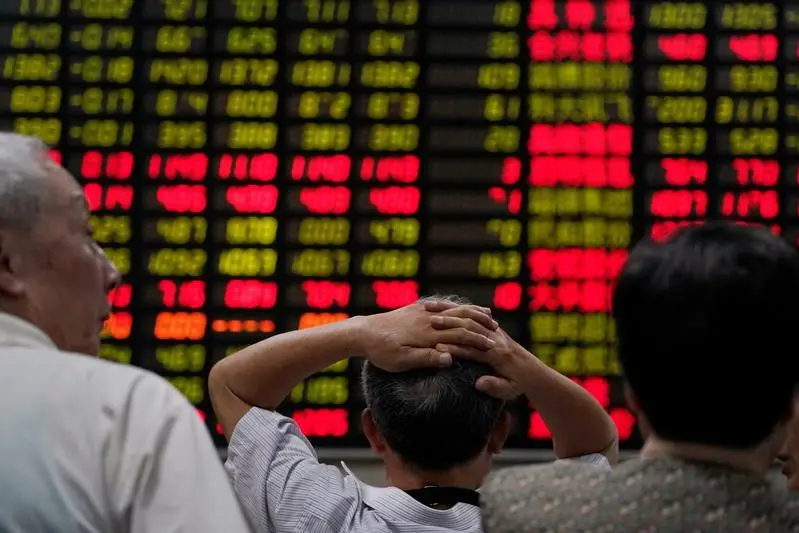PHOTO
SHANGHAI - Chinese shares jumped on Friday after authorities vowed at a top-level meeting to step up policy support to stabilise the economy and financial markets hit by domestic COVID-19 outbreaks and rising geopolitical risks.
The blue-chip CSI300 Index rose 2.4%, to 4,016.24, while the Shanghai Composite Index gained 2.4% to 3,047.06 points.
However, the CSI300 Index and the Shanghai Composite Index have lost 4.9% and 6.3% for April, respectively, as China's worst COVID-19 outbreak since Wuhan in 2020 and its zero-COVID policy clouded growth outlook.
Investor sentiment was further dampened by authorities' reluctance to roll out more stimulus in April.
China's yuan also rebounded and recovered all intraday losses as market sentiment improved after the meeting, with the onshore yuan bouncing from a 1-1/2-year low of 6.6520 per dollar to trade at 6.5930 as of 0737 GMT.
China will strive to keep economic growth within a reasonable range, achieve social and economic targets for 2022 and preserve the stable operations of capital markets, state media said, citing a meeting of the Politburo, a top decision-making body of the ruling Communist Party.
The meeting, chaired by President Xi Jinping, also said China would roll out measures to support healthy development of the platform economy, and a healthy development of the property market.
"The market reacted positively in line with the policy direction, but we do not expect the rise to be sustainable," said Dan Wang, chief economist at Hang Seng Bank China.
"The Politburo meeting did not propose any new measures that were not previously announced," Wang said. "Policies outlined suggest that the government and the state sector will play a decisive role in the economy, leaving the market and private sector little room to manoeuvre."
The Politburo maintained its stance on the controversial zero-COVID policy to control coronavirus outbreaks while minimizing the impact on the economy, state media said.
"Authorities are balancing the impossible tasks of maintaining dynamic zero policy and stabilising growth. What stands out is further relaxation of housing policy and stimulating consumption," Wang said.
The strict anti-virus policy, which analysts say is key to reviving Chinese growth, has placed residents in the financial and commercial hub of Shanghai under a prolonged one-month month, disrupted supply chains and disturbed economic activities across the world's second largest economy.
China's capital Beijing closed more businesses and residential compounds on Friday, and the national daily COVID-19 caseload resurged after five consecutive days of decline, with mainland China reporting 15,688 new cases for Thursday, up from 11,367 a day earlier.
Sentiment got a further lift from China's stock clearing agency announcing it would halve stock transfer fees from Friday to reduce investors' trading costs and reinvigorate markets, sending shares of brokers up 4.7%.
Stocks in information technology and non-ferrous metal rose 5% each, while media firms jumped 7.2% and automobiles ended up 6%.
(Reporting by Jason Xue, Winni Zhou and Andrew Galbraith)





















